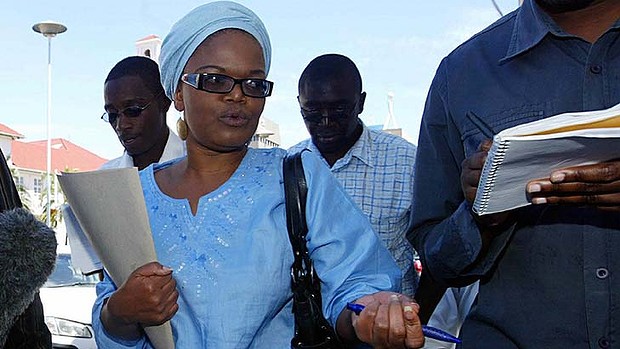Four days can pass quickly at Case Western Reserve University. But I imagine they constitute an eternity when spent in a Zimbabwe prison cell. Beatrice Mtetwa, the 2011 recipient of CWRU’s Inamori Ethics Prize, does not have to envision this comparison. It has been her forced reality for more than 96 hours.
The Zimbabwe government jailed Mtetwa, one of the world’s most prominent humanitarian rights attorneys, this past Sunday for allegedly obstructing the actions of police officers. According to The New York Times, Mtetwa was arrested after she refused to give officers her purse and cell phone when they failed to produce a search warrant.
The arrest of Mtetwa and three other activists is part of a larger effort in Zimbabwe to suppress opposition politicians and civic groups. This suppression is occurring before the nation’s presidential election, which is anticipated to occur later this year.
Mtetwa first earned international acclaim for her defense of journalists who were being held or deported by the Zimbabwean government. In more recent years, she has stated her work involves defending the elementary civil and human rights of average citizens in her country.
“Beatrice Mtetwa has been battling injustice and defending vital human freedoms for over 20 years, at great personal risk, in a country where the law is used as a weapon against independent professionals,” CWRU’s Inamori International Center for Ethics and Excellence stated in the official citation for the 2011 Inamori Ethics Prize.
Mtetwa was awarded the prize on Sept. 7, 2011 in a ceremony at Severance Hall. “You need to do good, not necessarily live well,” she told a crowd of university students, staff, faculty, and administrators.
Attempts to free Mtetwa had yet to prove successful at the time this edition went to print. Additionally, while Shannon French, director of the Inamori Center, has denounced Mtetwa’s imprisonment through social media, the university as a whole has remained mostly silent on the issue.
As of press time, CWRU has yet to condemn Mtetwa’s imprisonment in either a statement to the press, a posting on case.edu, or updates on social media. Some may argue the university isn’t responsible for denouncing a human rights violation occurring half way around the world. I would assert those are the same people who will never qualify for the Inamori Ethics Prize.
But this moment doesn’t belong solely to university administration; students should share it as well. By denouncing the actions taken against Mtetwa in ways applicable to their organizations, students can help garner more attention for a global issue.
This juncture represents an unprecedented opportunity for CWRU. It’s the time to show a distinction bestowed by our institution runs deeper than the surface it is engraved upon. It is an instant when we can substantively support the values we honor, even after the acceptance speech has been given and the celebratory drinks have been poured.
Want to connect with the editor?
Follow him on Twitter @tylerehoffman or drop him a line at observer@case.edu.



